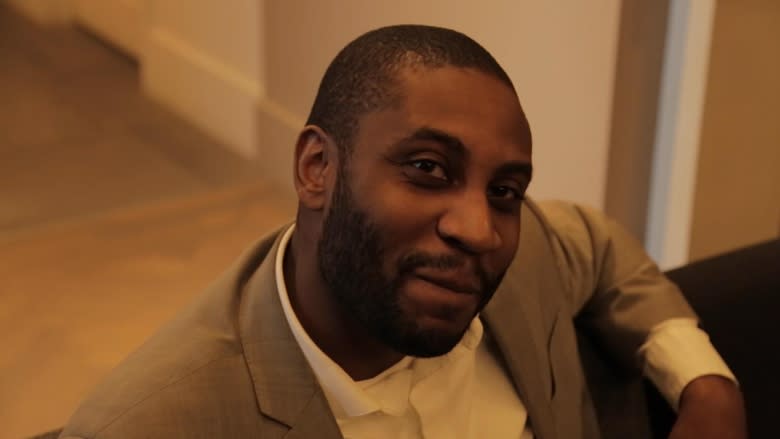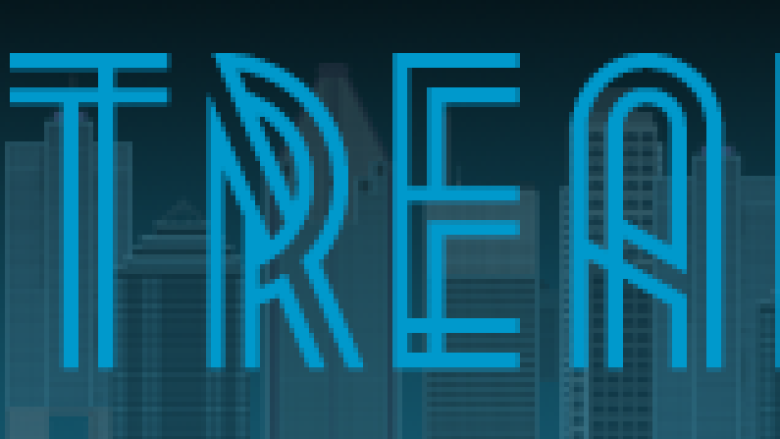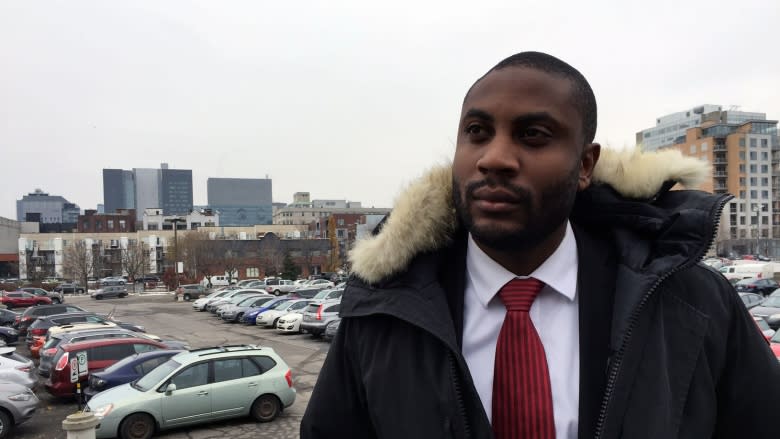Whither the beats? Jonathan Emile ponders why rap and hip hop struggle in Anglo Montreal
This is the fourth in CBC's new podcast series, Montreapolis. You can hear a full feature interview with Jonathan Emile on the podcast, bringing you conversations with people who make up modern Montreal. Click here to subscribe.
Jonathan Emile has achieved something that few others in Montreal have been able to: he makes a living rapping in English.
Montreal — arguably Canada's cultural capital, where pop music, visual art, dance and design have flourished in both official languages — can't seem to get much traction with Anglo rap and hip hop.
"If I want to do something in that genre of music, then I definitely have to make a name for myself outside of Montreal," Emile told CBC podcast Montreapolis in a wide-ranging interview.
While other art forms seem to have bridged the linguistic divide, Emile said hip hop isn't quite there yet.
"That's why a lot of people, to this day, have never heard of me in the city," said Emile.
"Sometimes Montreal feels like two cities: one of a million anglophones and another of three million francophones."
Successful career
Emile has done a pretty good job of carving out a career as an Anglo Montreal rapper nonetheless, releasing two albums, including his latest Phantom Pain.
He has an interesting backstory which has helped get him attention. He was diagnosed with a rare form of childhood cancer of the soft tissue, connective tissue and bone as a teenager, and many of his songs are based on that experience.
A victory in a legal battle over a duet with U.S. rap superstar Kendrick Lamar last fall got Emile even more attention.
He supplements his music career with motivational speaking, producing and acting. And he's branching out musically, with a reggae album planned for later this year.
He makes it work, but he's one of the few.
Hip hop stuck in linguistic divide
Quebec pop and rock artists seem to have an easier time appealing to both francophones and anglophones. Artists such as Céline Dion, Arcade Fire, Patrick Watson, Coeur de Pirate and the Barr Brothers have had success on both sides of the linguistic divide.
In rap and hip hop, it's mostly still the two solitudes.
There are several established francophone rap acts based in Montreal — groups such as the Dead Obies, Radio Radio and Nomadic Massive, all rapping in more than one language.
But an established anglophone rap and hip-hop scene simply doesn't exist. Emile believes it's tied to the nature of the art form.
In hip hop, words matter.
"Hip hop is very American, very Afro-centric. And it's very lyrical and content-based. So in Quebec, not only is it alien in terms of culture, but linguistically it's alien, too," Emile said.
Montreal's demographics also play a role.
Whereas Toronto's black population has mostly Caribbean roots, Montreal's is more diverse. Many black anglophones in Montreal are from Caribbean or East African backgrounds, while the francophone black community includes many Haitians and diaspora from West Africa.
Emile said that diversity provides a rich mix of music, but it hinders a true anglophone rap scene from taking root.
'Remarkable place'
Emile's not complaining. The very diversity that fragments Montreal's rap scene provides artistic inspiration, nonetheless.
"This is by far the most culturally vibrant city in North America. After travelling and after seeing different places in the world, you come back here and you say, 'Wow this is actually quite a remarkable place,'" Emile said.
"Not only are there so many things happening at once culturally and artistically, but we get along, for the most part," he continued.
- More from Montreapolis:
He's trying to do his part to bridge the gap between the Franco and Anglo rap worlds, collaborating with francophone rappers.
He said it might be better for his career to move to Toronto or New York, but he's not interested. He'll travel for work, but Montreal is home.
"If Leonard Cohen could go out to L.A. and do what he has to do and still call Montreal home, why can't I?"
You can hear a full feature interview with Jonathan Emile on CBC's new Montreapolis podcast, bringing you conversations with people who make up modern Montreal. Click here to subscribe.




